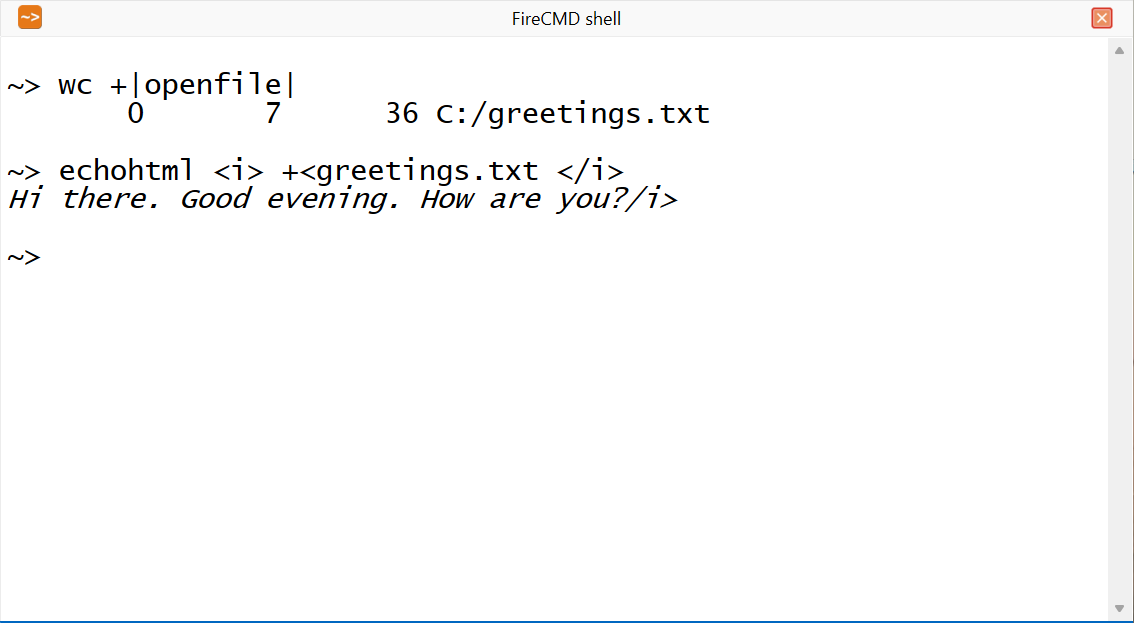Command Substitution
Command substitution allows a command to be run and its output to be pasted back on the command line as arguments to another command. FireCMD also allows command substitution using a file.
FireCMD uses a pair of operators for command substitution. The "+|" and "|" operators can be used for normal command substitution and for command substitution using files, the operators "+<" and "<" can be used.
Example: wc "+|openfile|"
In the above example, the openfile command gets executed first and allows the user to select a file and then it's output is passed as an argument to wc command after removing the line feeds. wc is a UNIX command which counts the number of characters, words and lines in a file.
When FireCMD finds the operator "+|" it looks for a matching operator "|". If it is not found, it displays an error. Remember that the command substitution cannot be nested. The built-in commands should be avoided in command substitution as they don't print anything on the standard output.
Example: echohtml <i> +<greetings.txt< </i>
In above example the contents of greetings.txt file is pasted between the <i> and </i> HTML tags and then it is passed as an argument to echohtml command which finally displays the contents in italic font.

Note that the line feeds are not removed when command substituting from files but if used with echohtml command the line feeds will be removed as in HTML a <br/> tag is used for line break..